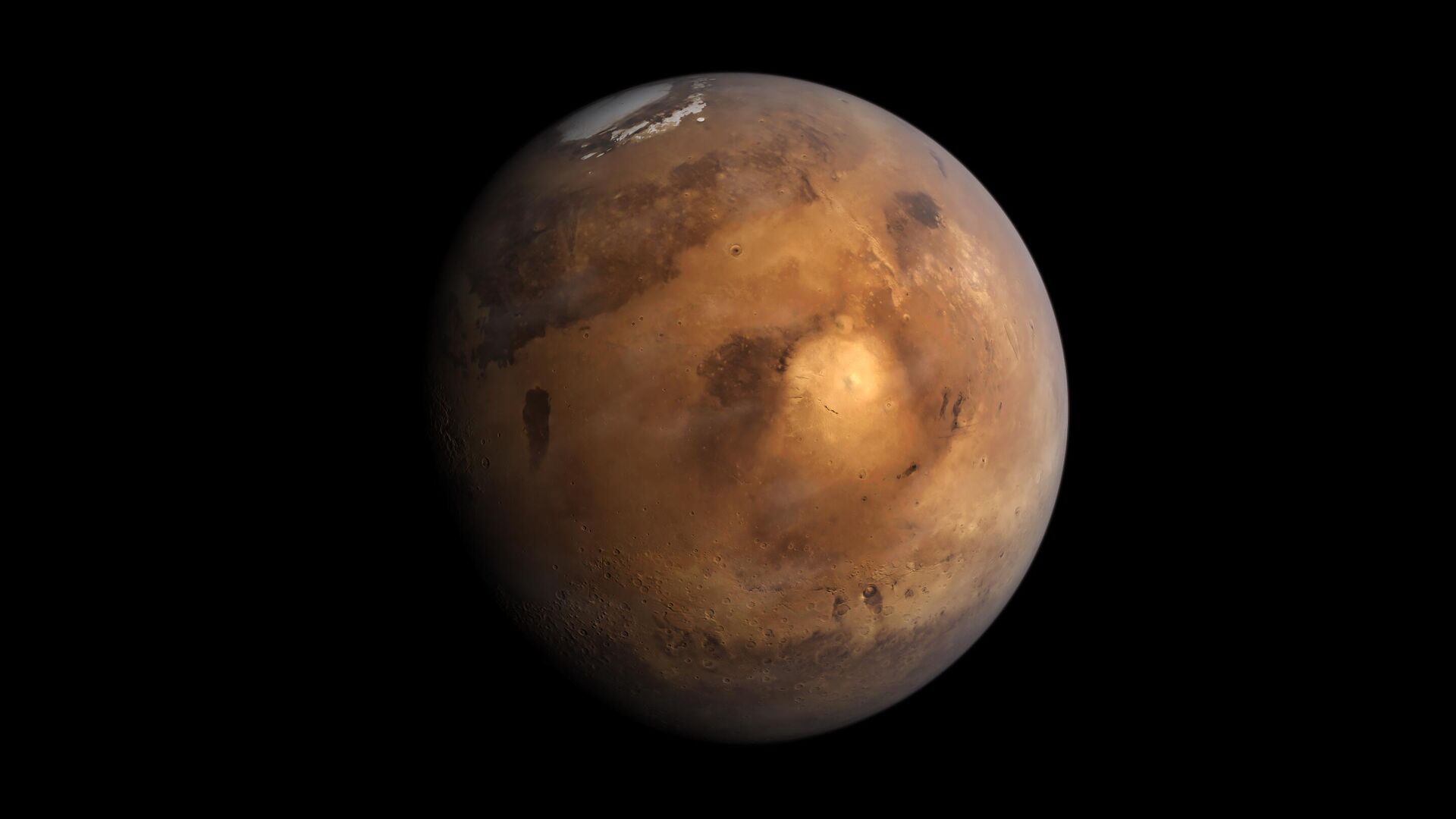https://sputnikglobe.com/20220427/solar-power-can-help-humans-survive-on-mars-scientists-say-1095094891.html
Solar Power Can Help Humans Survive on Mars, Scientists Say
Solar Power Can Help Humans Survive on Mars, Scientists Say
Sputnik International
Mars, the fourth planet from the Sun, boasts dusty desert landscapes and has a very thin atmosphere, making it not exactly perfect for humans. However, this... 27.04.2022, Sputnik International
2022-04-27T10:53+0000
2022-04-27T10:53+0000
2022-11-30T10:10+0000
science & tech
solar power
mars
https://cdn1.img.sputnikglobe.com/img/07e6/04/18/1095002428_0:0:2880:1620_1920x0_80_0_0_722efd87258f093dff33ebbceadfd662.jpg
It looks like solar power can be more efficient in helping humans survive on Mars than nuclear energy, according to new research conducted by scientists from the University of California, Berkeley, cited by The Daily Mail.The scientific team has examined energy output levels from different types of technology, and ruled that solar generators would do best when it comes to powering a potential Martian colony.Solar power could help generate the energy needed to split water molecules to produce hydrogen, while also using it with nitrogen to produce ammonia fertilizers.When looking for the best power source for colonising Mars, the team had to take into account the fact that for solar generators, it is important where exactly on the red planet they are placed. It is because solar panels rely on such factors as solar intensity, surface temperature, along with many others, so the team had to pinpoint a perfect location for the solar-powered sources of energy on Mars.Eventually, the scientists found that a photovoltaic array that uses compressed hydrogen for energy storage would be the ideal solution for a Mars colony.Still, the result was "split pretty close down the middle".Such system could use electricity to split water molecules and produce hydrogen, which then can be stored in pressurized vessels and re-electrified in fuel cells for power at times when there's no Sun.The scientists hope to come up with a "full model of the system, with all of the components included, which we envision as helping to plan a mission to Mars, evaluate tradeoffs, identify risks, and come up with mitigation strategies either beforehand or during the mission."NASA is planning to send a space crew to Mars in the 2030s, after first landing on the Moon. SpaceX founder Elon Musk also highlighted his plans to establish a Martian colony, setting the goal for the 2050s.
mars
Sputnik International
feedback@sputniknews.com
+74956456601
MIA „Rossiya Segodnya“
2022
Sputnik International
feedback@sputniknews.com
+74956456601
MIA „Rossiya Segodnya“
News
en_EN
Sputnik International
feedback@sputniknews.com
+74956456601
MIA „Rossiya Segodnya“
Sputnik International
feedback@sputniknews.com
+74956456601
MIA „Rossiya Segodnya“
science & tech, solar power, mars
science & tech, solar power, mars
Solar Power Can Help Humans Survive on Mars, Scientists Say
10:53 GMT 27.04.2022 (Updated: 10:10 GMT 30.11.2022) Mars, the fourth planet from the Sun, boasts dusty desert landscapes and has a very thin atmosphere, making it not exactly perfect for humans. However, this could all change thanks to an unexpected tool.
It looks like solar power can be more efficient in helping humans survive on Mars than nuclear energy, according to new research conducted by scientists from the University of California, Berkeley, cited by
The Daily Mail.
The scientific team has examined energy output levels from different types of technology, and ruled that solar generators would do best when it comes to powering a potential Martian colony.
Solar power could help generate the energy needed to split water molecules to produce hydrogen, while also using it with nitrogen to produce ammonia fertilizers.
When looking for the best power source for colonising Mars, the team had to take into account the fact that for solar generators, it is important where exactly on the red planet they are placed. It is because solar panels rely on such factors as solar intensity, surface temperature, along with many others, so the team had to pinpoint a perfect location for the solar-powered sources of energy on Mars.
Eventually, the scientists found that a photovoltaic array that uses compressed hydrogen for energy storage would be the ideal solution for a Mars colony.
Still, the result was "split pretty close down the middle".
"Nearer the equator, solar wins out; nearer the poles, nuclear wins," said the study's co-lead author, Aaron Berliner.
Such system could use electricity to split water molecules and produce hydrogen, which then can be stored in pressurized vessels and re-electrified in fuel cells for power at times when there's no Sun.
The scientists hope to come up with a "full model of the system, with all of the components included, which we envision as helping to plan a mission to Mars, evaluate tradeoffs, identify risks, and come up with mitigation strategies either beforehand or during the mission."
NASA is planning to send a space crew to Mars in the 2030s, after first landing on the Moon. SpaceX founder Elon Musk also highlighted his plans to establish a Martian colony, setting the goal for the 2050s.

